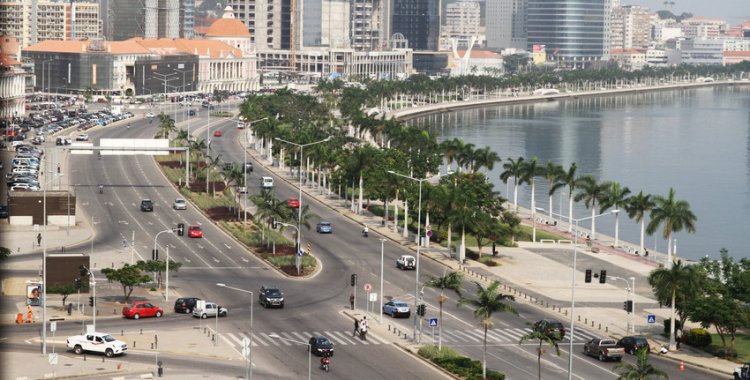According to data provided by the Agency for Investment and Foreign Trade of Portugal (AICEP), Angola's Foreign Direct Investment in Portugal (FDI) in June this year amounted to 2,214 million euros, compared to 1,973 million euros of investment Direct Portuguese abroad (IDPE) in Angolan territory registered in the same month.
FDI has remained more or less stable since 2017, and in December 2019 it totaled 2,249 million euros and a year later it stood at 2,176 million euros.
The IDPE, on the other hand, has registered a notable drop in recent years. In December 2017 it amounted to 4,547 million euros and by 2020 it had already fallen to 1,944 million euros.
With regard to exports to Angola, data sent by AICEP, from the National Institute of Statistics (INE) point to a reduction of 2.8 percent in the first half of this year, in year-on-year terms, with imports having in turn fallen almost 78 percent, at a time when international trade was heavily affected by the pandemic.
In the last ten years, much has changed in the relations between Angolan and Portuguese businessmen, with the most evident examples being the fall in the influence of Isabel dos Santos, following Luanda Leaks, and the consequences of the disappearance of the Espírito Santo Group.
The most important economic relations between the two countries are visible in the following sectors:
Bank
The 90's marked the entry of Portuguese banks in Angola with the normalization of the country's financial system, after the post-independence nationalizations (1975).
Of the banks that make up the Angolan banking sector, five concentrate the majority of the market. Of these, two have capital of Portuguese origin: Banco de Fomento Angola (BFA), in which BPI is a shareholder, and Banco Económico, formerly Banco Espírito Santo Angola (BESA), of the Espírito Santo group, which was eventually dragged into the downfall of the group. Novo Banco maintains a position in this Angolan institution, which is dominated by Sonangol.
Also in the country are BCP, through Banco Millennium Angola (BMA) and Caixa Geral de Depósitos, at Banco Caixa Geral, where it had a partnership with Santander Totta, which sold its position in 2015. Montepio is also present. present in this African nation, through a 51 percent stake in Finibanco Angola.
Angola's presence in Portuguese banking is more recent and has undergone many changes in recent years, after Luanda Leaks.
In 2008, Sonangol bought 9.99 percent of the capital of BCP and, in 2009, it was the turn of the holding company Santoro (of Isabel dos Santos) to enter BPI, by acquiring 9.67 percent of the bank's capital from BCP.
Sonangol is currently the second main shareholder of BCP, with 19.49 percent.
At BPI, Santoro sold its stake in CaixaBank's Public Offering (OPA) in 2017.
In turn, BIC Portugal bought BPN for 40 million euros from the Portuguese state, but after Luanda Leaks, the institution (now EuroBic) announced that businesswoman Isabel dos Santos would abandon the shareholder structure of the Portuguese bank, a measure to "to safeguard the trust in the institution", according to the financial institution.
However, this sale has not progressed yet and the businesswoman remains at the bank, through Finisantoro (17.5 percent) and Santoro Financial Holding (25 percent), according to the latest information available on the bank's website, and the participation is arrested.
Energy and Industry
Holding Esperaza, a joint venture in which Sonangol holds 60 percent of the shares and Exem (owned by Isabel dos Santos) holds the remaining 40 percent, controls 45 percent of Amorim Energia which, in turn, is a reference shareholder of Galp. However, the Angolan state oil company announced in July this year that it had been declared the sole owner of the investment made in Galp, according to the final decision of a Dutch court that arbitrated the litigation between the oil company and Exem, which, in turn, appealed of the decision.
The Portuguese oil company's relationship with Angola dates back to 1982, dedicated to oil production and exploration.
In the industrial area, with links to energy, Isabel dos Santos' position at Efacec was, until last year, the majority, but was eventually nationalized by the Government after the businesswoman left, due to Luanda Leaks. It is now in the process of reprivatization.
Construction
The most emblematic presence of Portuguese companies in Angola belongs to Mota-Engil. The company led by António Mota and Gonçalo Moura Martins has been in the country since its foundation in 1946, but has been strengthening and diversifying its presence in recent years, following the economic development of that market.
Mota-Engil Angola, the subsidiary created in 2010 by the group for this country, has shareholders such as Sonangol (20 percent), and the Angolan state plans to sell this position.
Teixeira Duarte is another of the Portuguese construction companies that are present in the Angolan market. The difficulties of companies such as Soares da Costa, historically with a large presence in Angola, dictated the reduction of Portuguese interests in the Angolan market in this sector.
Telecommunications and Media
In telecommunications, Isabel dos Santos' participation in Zon, through ZOPT, is arrested by the court, and in March, Sonae's executive president, Cláudia Azevedo, stated that she is "in expectation" that the arrest "is corrected" ZOPT's assets so that the partnership with the Angolan businesswoman is dissolved.
Asked about the dissolution process of ZOPT - 50 percent held by Sonaecom and the remaining half by Isabel dos Santos -, Cláudia Azevedo said she was waiting for the situation to be resolved.
In the media, Angolan Newshold still holds 2.4 percent of the group founded by Pinto Balsemão in Impresa, having abandoned other positions in the national media.







